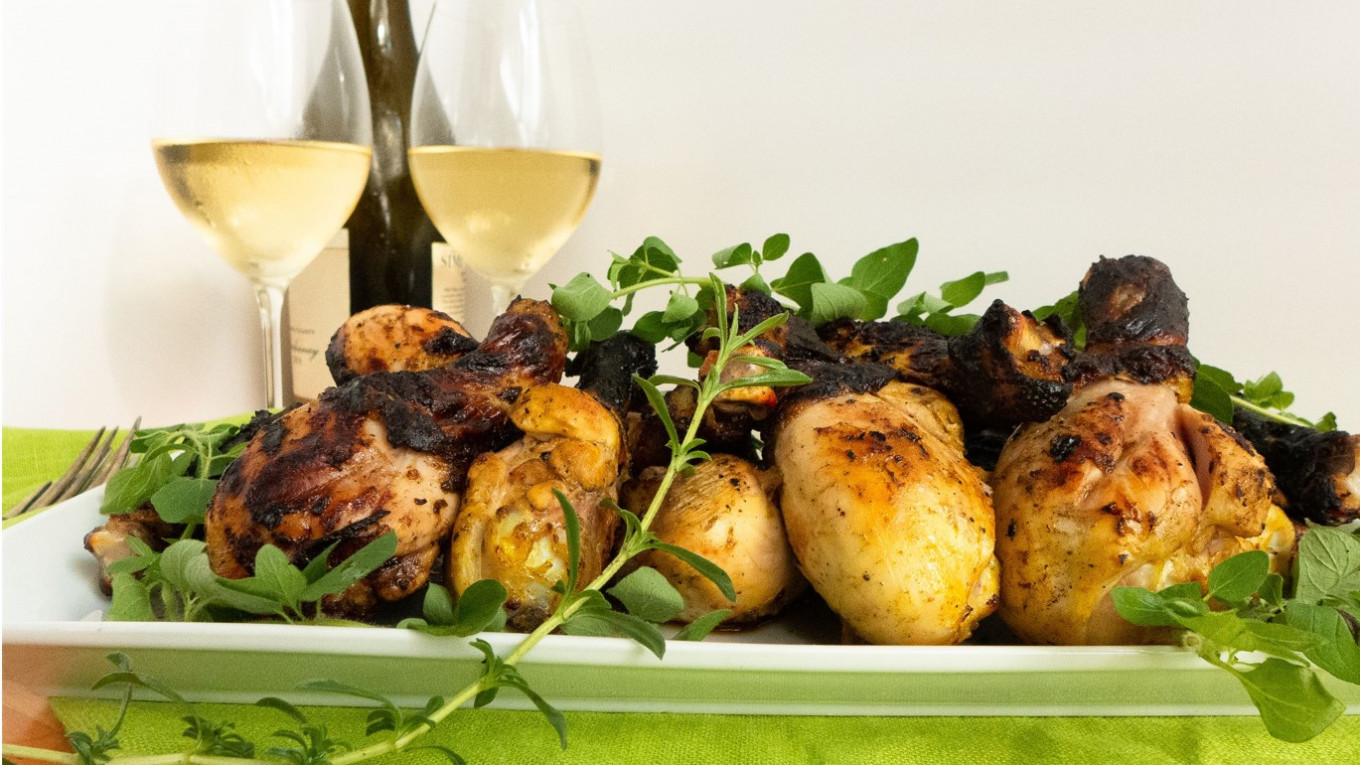This is not shaping up to be the best summer for grilling.
Grilling is an activity that needs an end of the day respite from intense heat, ideally borne in on a gentle breeze from the mountains or sea, and there has been precious little of that lately. And yet, reader, we persist. We endure the heat and the humidity, which turns into an inferno the minute the grill is lit. We sweat profusely over our grills, quickly showering while the meat rests to come to the table in a halfway presentable state because, what is summer, after all, without the sizzle and smoke of well-marinated meat hitting the preheated and oiled grill?
Grilling is not, strictly speaking, native to Russia, but an import from their southern neighbors, though which neighbors can lead to heated arguments between culinary historians and guys who hover over the grill, mansplaining Russia while stuffing canapés into their mouths.
“I don’t see how it isn’t the Mongols,” I said, wiping my forehead with an already damp oven mitt. This has always been a no-brainer to me: when the nomadic Mongols invaded Russia in the thirteenth century, they introduced all manner of cultural touchstones, such as the concept of money and the word for it (деньги), a tax system and much more. When Ivan the Terrible finally got rid of them in the fifteenth century, the Mongols also left a large culinary legacy that included fermentation, spices, and (so I believe) the tradition of grilling small parcels of meat on a stick.
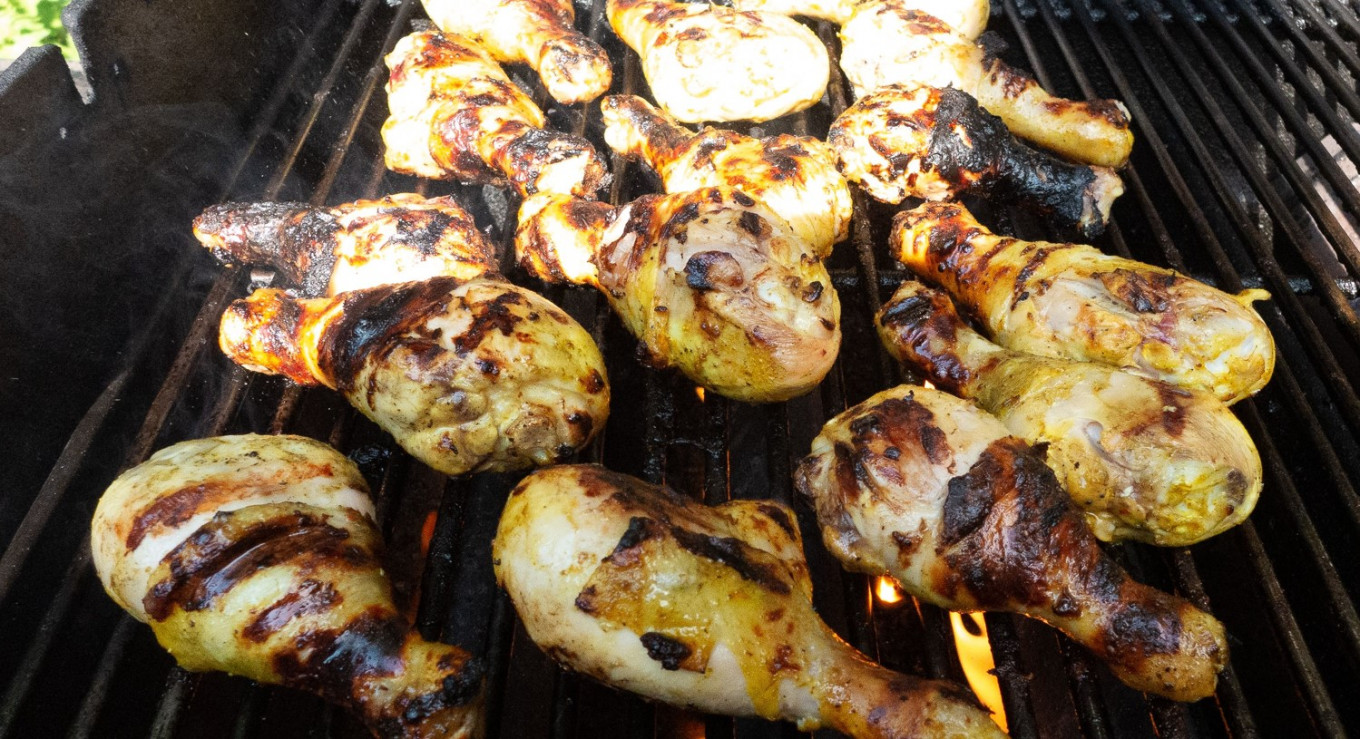
“I know for certain that shashlik came to Russia from the Caucuses in the 18th century, and only arrived in Moscow in the 19th century,” said one greedy mansplainer, grabbing my tongs in an authoritative manner and elbowing me out of the way of a mixed grill sizzling away on the inferno. It was so hot that I did not put up much of a protest, and the mansplainer moved in the place I had vacated as if he paid property taxes on it. “Шашлык не терпит женских рук,” or “Shashlyk does not tolerate a woman’s touch,” is a popular rallying cry in dachas from May to September, and it was clearly a first principle for this mansplainer.
I snuck upstairs to my study to check some of my sources and to my chagrin learned that the mainsplainer’s theory is shared by two culinary titans with whom it is hard to argue: authoritative William Pokhlebkin, who straddled the twilight of the pre-revolutionary and early Soviet era, and Vladimir Gilyarovsky, the inimitable chronicler of fin de siècle Moscow. According to both, shashlyk — or meat on a stick — was brought to Russia by soldiers on campaign in the southern part of Russia in the eighteenth century. There Zaporozhian Cossacks adapted the Crimean Tatar word for spit or “sheesh” into “shashlyk” which roughly meant “skewerable.”
It occurred to me we might both we right: after all, the Crimean Khanate was the successor of the Mongols.
Whether its origins are eight hundred years old or a measly two hundred, grilling is now firmly entrenched in Russian cuisine, particularly in summer, when meals are often prepared outdoors, either over a traditional wood and charcoal-burning mangal, or the more recent and most welcome innovation of a gas grill. Such meals are delightful in their simplicity if somewhat repetitive: grilled meat, a salad of fresh vegetables, and some chewy bread. And what could be nicer in the fresh country air?
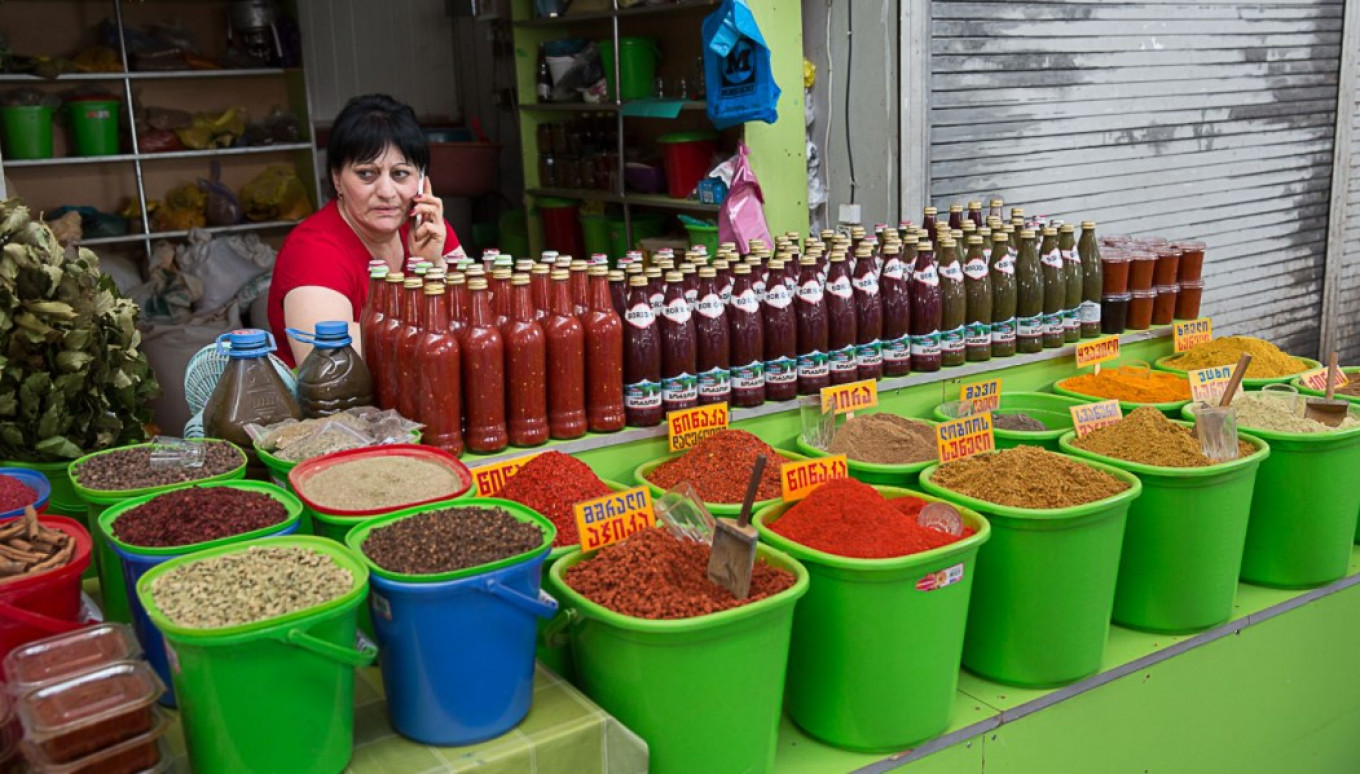
To vary things, each summer I work on expanding my marinade repertoire. Shashlyk may not tolerate a woman’s hands, but marinades seem to like them. And if there is scope for creativity in the summer grilling lineup, it is in the way you prepare the meat for its quick, hot sear. I’ve written before in this column about the science of marinades and given some of my favorites. This summer, I’ve had fun experimenting with some new ideas, and one is this week’s recipe for chicken drumsticks, which fuses ingredients from Russia’s north with spices and sauces from her neighbors in the Caucasus to the south. Though this marinade will work with any type of chicken, I’ve loved using it with drumsticks, particularly when feeding the crowds of twenty-somethings that often appear with very little warning around my grill. I always make more than I need because they are marvelous for luncheon the next day, which cannot always be said of shashlyk. Any dairy will do for this: liquid yogurt, kefir, buttermilk, or even whey if you have that lying around (I usually have far too much). Adjika, Georgia’s beloved red pepper condiment can be found online, as can the signature spice blend of the region, Khmeli Suneli. I have a lot of fresh herbs in my garden, including summer savory, which is another favorite Georgian flavor accent, so I used that as a garnish, along with oregano.
Serve these with any salad you like, or in fine Russian tradition, with a plate of fresh tomatoes, cucumbers, and fresh herbs from the garden.
I’m sure there is a neat metaphor on which to end this piece: something along the lines of “if you can’t stand the heat, get out of the kitchen,” but just now, mixing up the marinade in the air-conditioned kitchen is such a blissful respite from the heat, I’m just going to stay here and leave the inferno of the grill to the mansplainers.
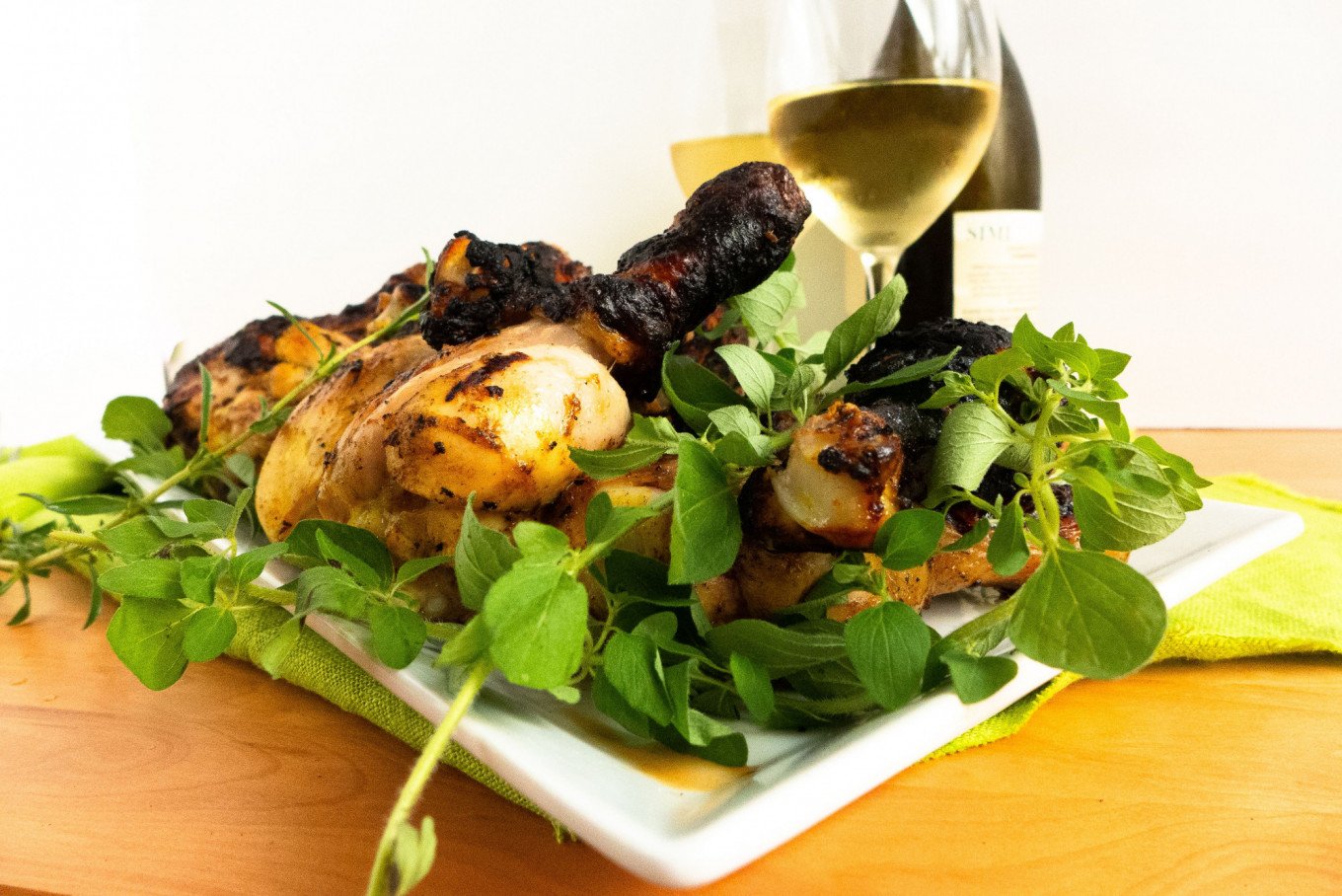
Caucasus-Style Chicken Drumsticks
Ingredients
- 2 ½ lbs. (1135 grams) chicken drumsticks (roughly 10-12 drumsticks)
- 1 ½ quart (1-½ liter) kefir or buttermilk
- 2 Tbsp turmeric
- 2 Tbsp Khmeli Suneli
- ¼ cup (60 ml) Adjika
- 2 Tbsp salt
- Fresh summer savory and oregano to garnish
Instructions
- Whisk together the kefir or buttermilk with the spices, adjika, and salt until the salt dissolves. Add the mixture to a sturdy plastic bag, then add the drumsticks. Firmly fasten the lid, then shake to combine. Chill for 24 hours.
- Heat a gas grill to medium high (about 450ºF or 235ºC) or prepare a mangal grill by allowing a wood fire to burn down to embers. If using a mangal, impale the drumsticks onto a skewer.
- Grill for approximately 8 minutes, turning the drumsticks frequently. Tent the chicken with foil for 10 minutes before garnishing with fresh herbs.
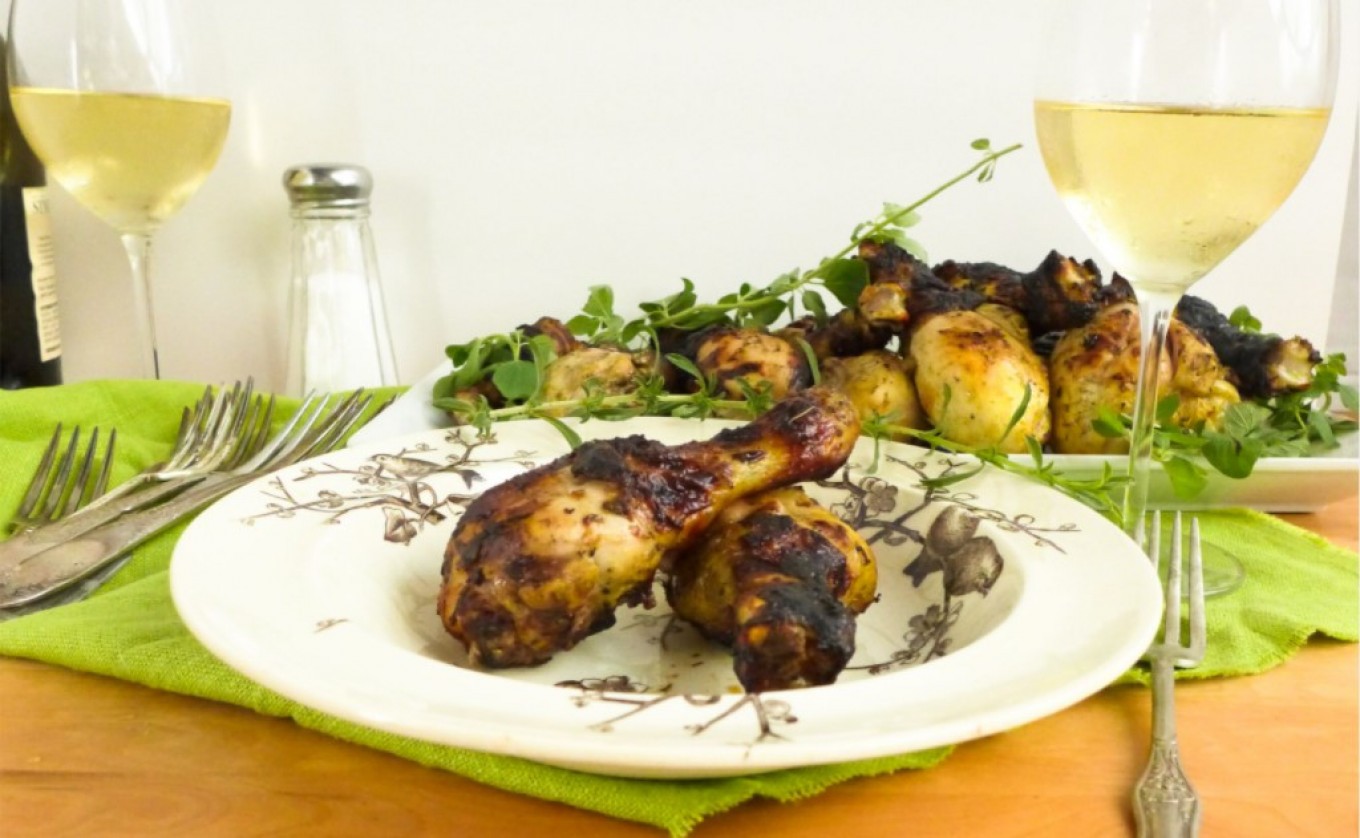
A Message from The Moscow Times:
Dear readers,
We are facing unprecedented challenges. Russia's Prosecutor General's Office has designated The Moscow Times as an "undesirable" organization, criminalizing our work and putting our staff at risk of prosecution. This follows our earlier unjust labeling as a "foreign agent."
These actions are direct attempts to silence independent journalism in Russia. The authorities claim our work "discredits the decisions of the Russian leadership." We see things differently: we strive to provide accurate, unbiased reporting on Russia.
We, the journalists of The Moscow Times, refuse to be silenced. But to continue our work, we need your help.
Your support, no matter how small, makes a world of difference. If you can, please support us monthly starting from just $2. It's quick to set up, and every contribution makes a significant impact.
By supporting The Moscow Times, you're defending open, independent journalism in the face of repression. Thank you for standing with us.
Remind me later.



